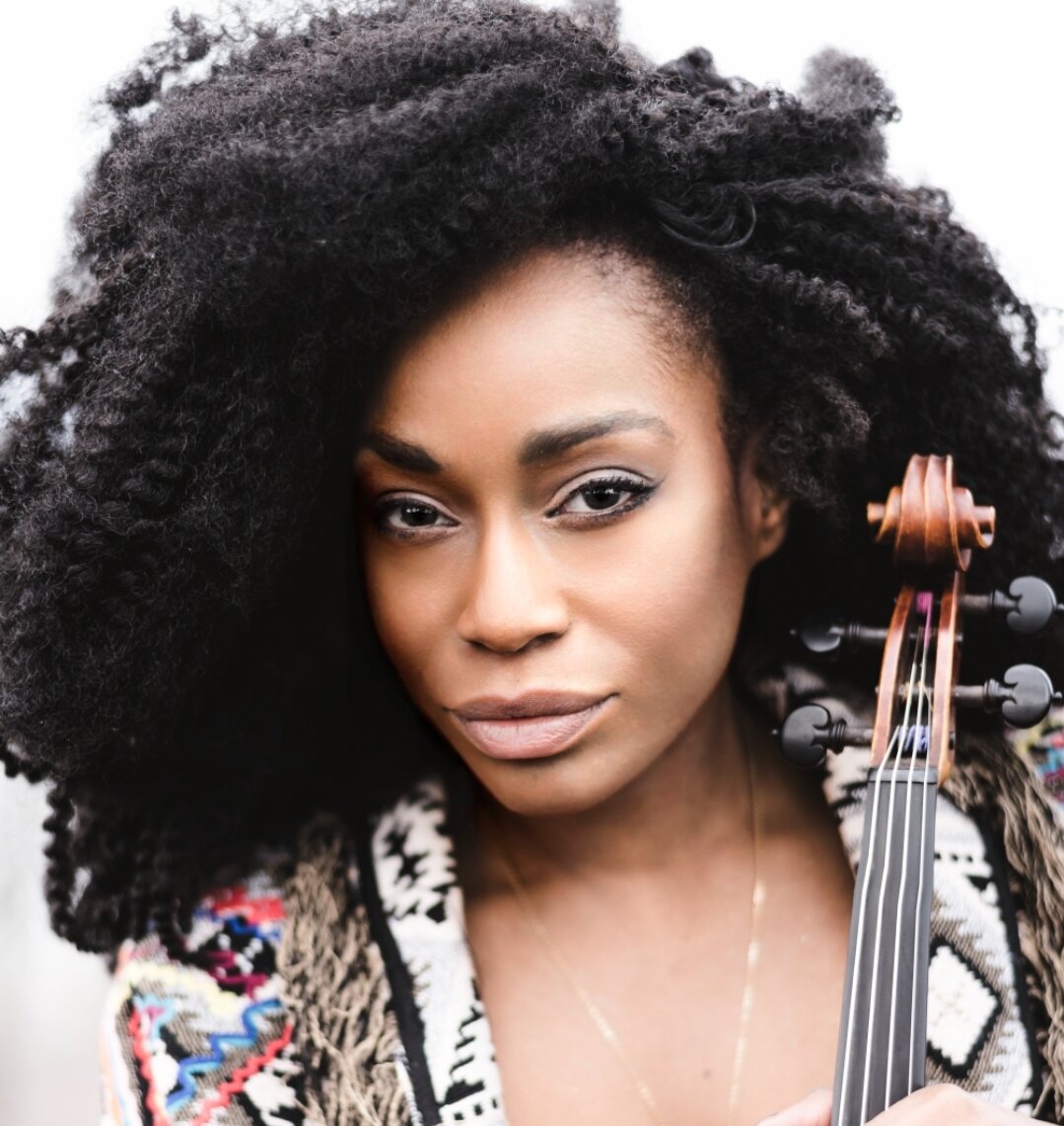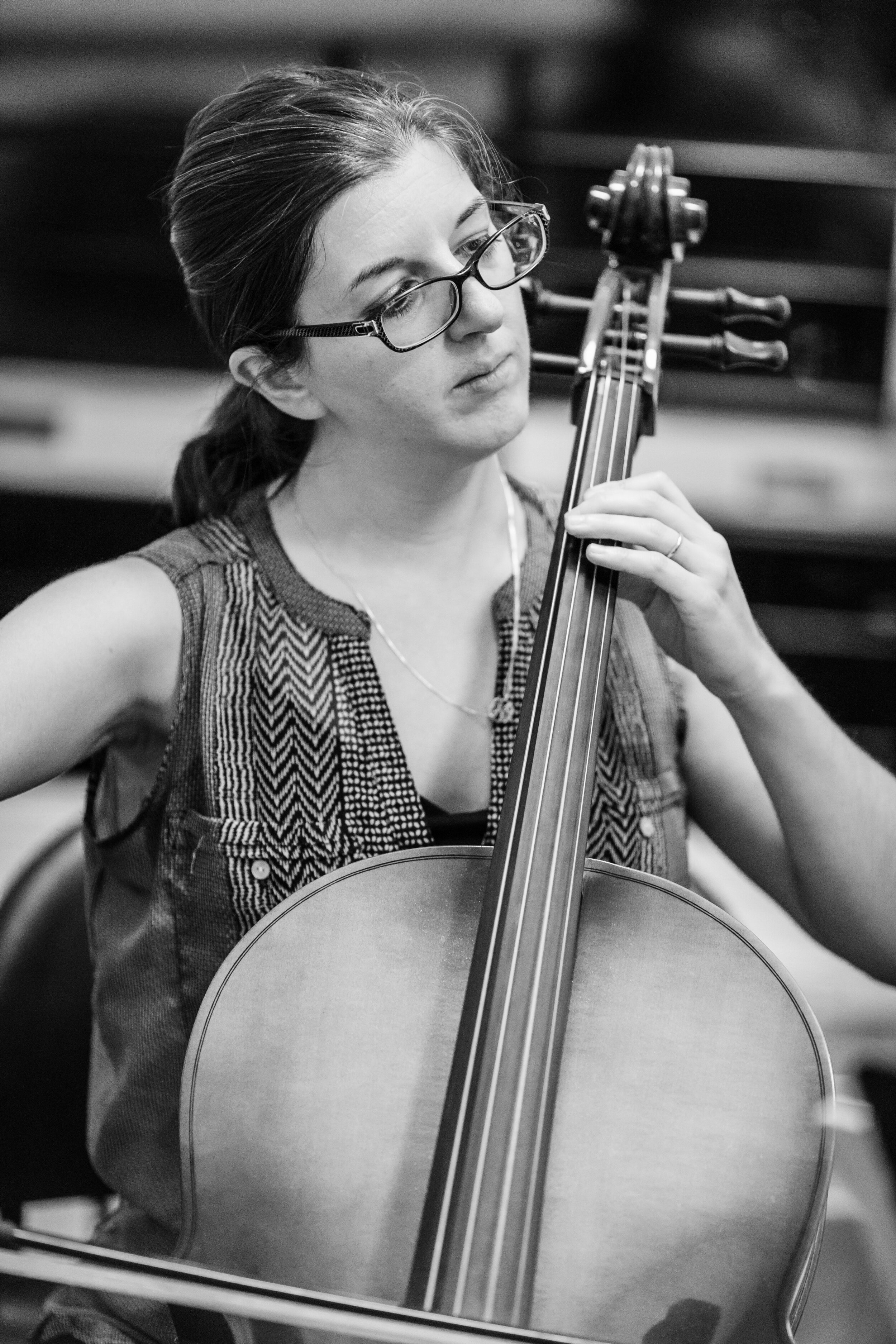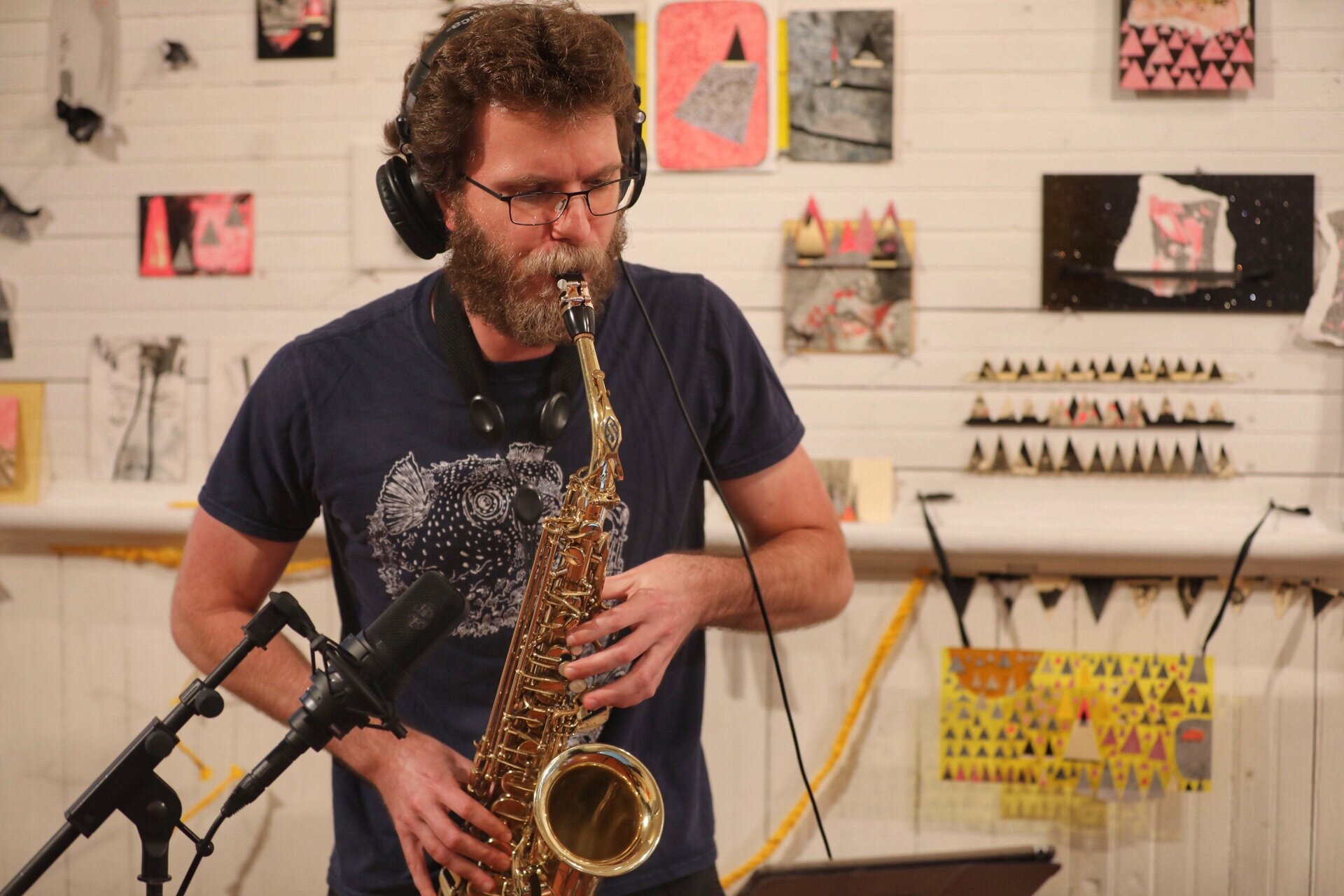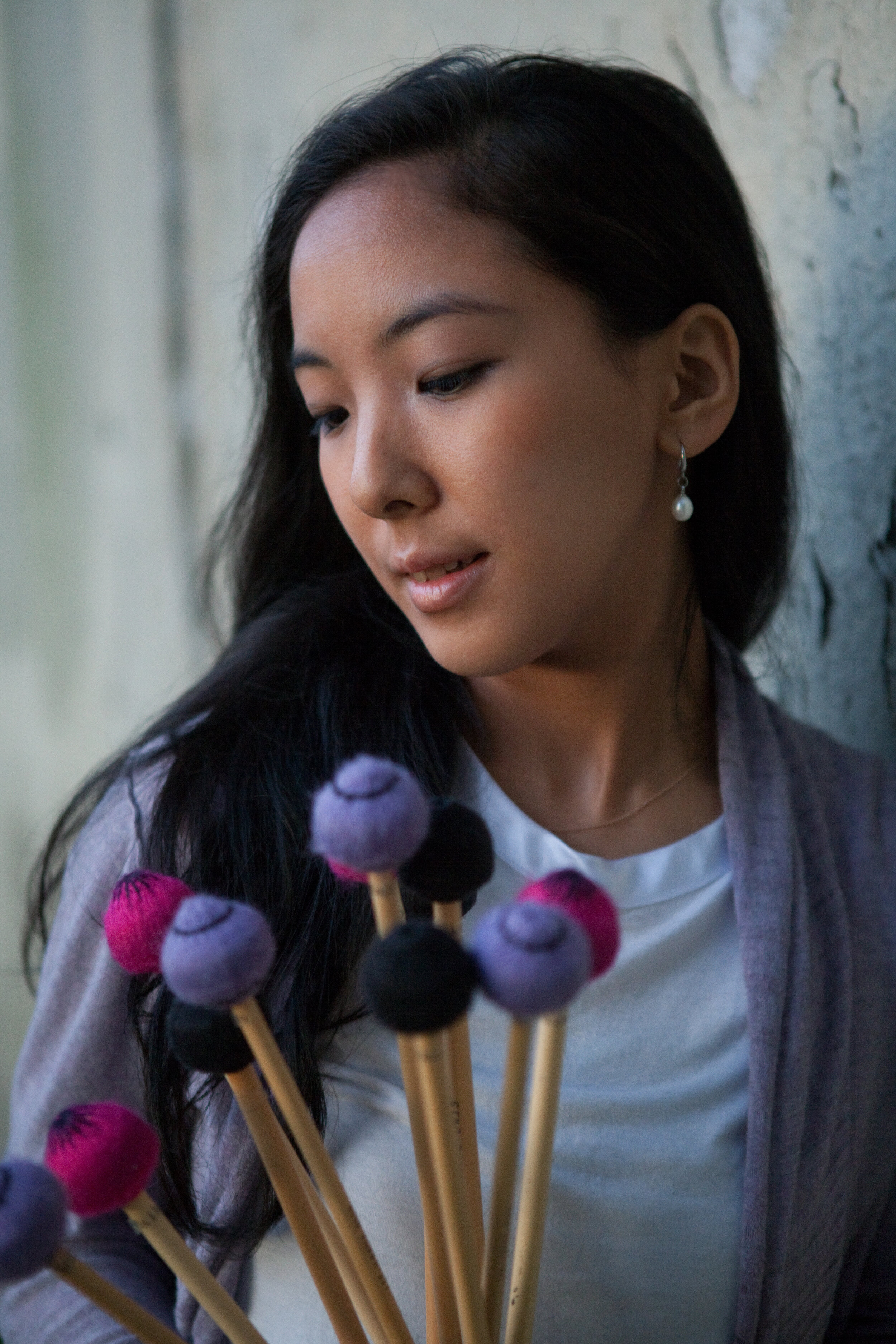RED GIANT
Music by Adam Matlock
Libretto by Brian Slattery
Directed by Ashley Tata
Live Performance: Sunday, June 20, 2021 at 7:00pm
Available On-Demand: June 22 – July 6
Cast
Elisabeth Halliday-Quan (soprano, “3”)
Bonnie Lander (soprano, “2”)
Robert Maril (baritone, “1”)
Production
Ashley Tata, director
Eamonn Farrell, video designer
Afsoon Pajoufar, scenic and costume designer
Aislinn Curry, stage manager
David Crandall, sound effects designer and recorded voice
Josh Kittle, additional technical assistant
Michelle Tabnick, publicist
Orchestra
Thomas Lai, violin
Tia Allen, viola
Jennifer Girone-Virgilio, cello
Zach Herchen, saxophone
Christopher Wilson, piano
Maiko Hosoda, percussion
George Lam, music preparation
Robert Maril, recording engineer
Composer’s Note
As a lifelong fan of Science Fiction and a composer enamored of opera as a medium, it only made sense to combine the two when given the opportunity to work on a piece. Of course in the beginning the scenario — people trying to escape a planet’s surface that has become uninhabitable due to their sun becoming the titular Red Giant — was pure fantasy. But in the nearly decade since this piece was first written, we’ve seen governments and societies struggle to reach a consensus as to whether or not climate change is really happening in the face of readily observable evidence — and it’s hard not to feel that this story has gained some resonance in the face of that. And of course, even in the face of a true existential crisis, humans will still find time to bicker.
- Adam Matlock
composer, Red Giant
Production Support
Red Giant is made possible in part with public funds from Creative Engagement, supported by the New York City Department of Cultural Affairs in partnership with the City Council and the New York State Council on the Arts with the support of Governor Andrew Cuomo and administered by the Lower Manhattan Cultural Council.
Rhymes With Opera is supported in part by the New York State Council on the Arts with the support of Governor Andrew M. Cuomo and the New York State Legislature, and by the Alice M. Ditson Fund of Columbia University.
About Rhymes With Opera
Rhymes With Opera (RWO) is an ensemble of performers and composers that expands the repertory of contemporary opera by commissioning, developing and staging new chamber works. Founded in 2007, Rhymes With Opera includes founding company members Ruby Fulton (composer); Elisabeth Halliday (soprano); George Lam (composer); Bonnie Lander (soprano); and Robert Maril (baritone). RWO performers also include instrumentalists in the Rhymes With Orchestra, a chamber ensemble comprised of some of this generation’s most exciting contemporary instrumentalists. With both the singers and instrumentalists, RWO produces as a self-contained contemporary opera machine, commissioning and producing works that can be performed whole-cloth by the company.
If you are interested in becoming one of our patrons and supporting our work, please visit our donation page!
Libretto
2: Turn on the lights.
1: We can’t turn on the lights.
2: If we don’t turn on the lights, we can’t see.
1: But there’s nothing to see.
2: Out there, you mean?
1: Yes, out there.
2: But I want to see in here.
1: What do you want to see?
2: Why do you want to know?
1: Because I want to know if it’s worth it. To turn on the lights.
2: It’s worth it to me. I want the lights on.
1: It has to be worth it to us. We need a third opinion.
2: She’s sleeping right now. I’ll go wake her up.
1: Don’t wake her up. It’s not fair to her to wake her up.
2: It’s not fair to me to keep the lights off.
1: We need the power, you know that.
2: For what?
1: To get where we’re going.
2: And where is that? Where is it we’re going?
1: You know I don’t know.
2: That’s my point. We can’t go on living like this, in the dark, if we don’t know where we’re going. Sooner or later we have to be able to see. Sooner or later we have to turn on the lights.
1: Don’t turn on the lights.
2: I’m turning on the lights.
1: You’ll wake her up.
2: Let her wake up. I’m turning on the lights.
1: They say people used to be glad to see the sun. That at the end of winter, when it came out from a cloud, people ran outside to see it. They’d turn up their faces, close their eyes and smile, because it was so warm. It felt so good. They say that for every place on this planet, there must have been a last perfect day, when the sun was out and the air was just right, the ocean was cool and the trees swayed in the breeze. Did everyone know it was the last day, then? And did they stay out, until the sun was gone? Because there was never a day like it again.
The sun was so far away then. Now it’s bigger, and the surface so much closer. The walls went up thirty generations ago. We locked the doors behind us and went underground, and most of us never went back outside. Ever.
3: What’s wrong?
2: Nothing now. Why?
3: Because the lights are on. Why are they on if nothing’s wrong?
1: Ask her.
3: Why are they on?
2: I wanted to read.
1: You brought something to read?
3: What did you bring?
2: What I could find, right before we left.
1: What is it?
2: I’m not going to tell you.
3: Why not?
2: Because there are some things I want to keep for myself. Is that so hard to understand?
3: A little bit, yes. We’re all that’s left now. When we get somewhere we can start over—
2: When? I think it’s more an if than when.
1: If you thought that, then why are you here?
2: Because I want every second I can get.
3: You don’t want to start over?
2: It’s not a question of what I want. It’s a question of what I can have.
3: You have to hope that this—where we are now—isn’t all we’re going to have.
2: I don’t hope for anything.
1: So it’s worse than I thought.
2: How can it be worse than you thought? After what we left? It doesn’t get worse than what we left. Or are you starting to forget already. I’m happy to remind you.
3: Don’t remind him. It will just upset him.
2: Do you remember how dark it was there? How hot? How the sweat just poured out of us, all the time. There was no escape. There was never any escape.
1: Would you please stop talking?
2: Just like there’s no escape now. It’s just the three of us in this little tiny box. The only difference between then and now is that it’s always cold. But like the cold. It’s a good warm-up—ha ha, warm up—for the big cold that comes next.
1: Stop talking.
2: Am I upsetting you? I’m sorry. Forget I said anything, and let me fill your head with lies instead. We’re going to sleep in just a couple hours. When we wake up, there below us will be a planet just like they say ours used to be. Miles and miles of lush cool forest, singing birds perched among the dark green leaves. Ripe fruit swaying from bended branches. Clear water rushing over rounded rocks. And air—air!—thick and cool, flowing around your fingers, over your limbs, into your lungs and out again. We’ll land on a field of soft grass like a dragonfly on a lily pad, and we’ll start all the way over again.
1: Stop.
2: We’ll remember all the mistakes our great-grandparents made, and their great grandparents before them. Every single one. And we, blessed with infinite wisdom, will know how to do everything different, everything better, so that the perfect planet we’ll find tomorrow stays perfect, right up until the end. And when that planet’s star comes for us, we’ll have been ready, ready for centuries.
1: I said stop.
2: And the descendants of our descendants will remember us, everything about us, and a day will never go by that they don’t speak our names. So maybe, just maybe, we’ll get to live forever.
1: Stop!
3: See? You upset him.
3: So what are you reading?
2: Nothing.
3: You won’t let me see it?
2: No.
3: Would you read it to me?
2: For twenty-nine generations we lived behind the walls, under the ground. We pulled light and power from the surface above, water from the ground below. But now everything is running down. The water is almost gone. The machines break and no one fixes them. The sun’s getting closer and closer. So much light that we can’t see through it. And the ground is getting warmer, the walls are getting warmer. Soon, they said, the sun will explode. Then it wouldn’t matter where anyone was—under the earth or on the surface, or flying high above. For anyone in the orbit of the red giant, all that would matter is the air they breathed, the air they had left. And whatever time that gives them.
2: I’m hungry.
3: We can’t eat yet.
2: If I eat now, I promise not to eat later.
3: We need to be careful about this. If we eat everything now, there won’t be anything to eat later.
2: I didn’t say I was going to eat everything. I just said I was hungry now. 3: We need to live as long as we can.
2: You call this living? Half-starved in the dark?
3: It’s better than dying.
2: It looks the same to me.
3: But it’s not the same. It’s not.
3: We made a deal, didn’t we? That we would leave home together and not look back? This is our world, now. This ship. It’s big enough for the three of us, but only if we’re not angry at each other. Only if we don’t resent it.
2: But I do resent it, I do.
1: If you feel that way, you could always get off.
2: Are you saying I should?
1: No. I’m saying you could. I dreamed of it myself, just last night.
2: That I left the ship?
1: No. That I did.
1: It was an hour just like this. The lights low. Nothing moving. I heard a noise, something from outside the ship. Something calling me out. So I put on the suit. Got into the hatch. Had one of you close the door behind me. Then I opened the door in front of me and stepped into space, without a line to tie me down. Once I was floating free, there was no way of coming back. No way even to turn around, to look at the ship behind me. To see if the two of you were watching me out the window. Not that it mattered. There was only the blackness in front of me, the stars so far away. I held my breath and waited, listened hard, to see if I could hear what had called me out before. I couldn’t hear anything. So I reached up and took off my helmet. Just like that.
2: And then what happened?
1: I was happy. Happier than I’ve been since we left.
1: It’s not that I want to do it. I just don’t know how much longer I can live like this.
3: They tell us we used to live outside, thirty generations ago, and if you could survive out there now, you could see the ruins of the cities. The fallen buildings, the blasted streets. The metal and glass melting in the heat. The toppled bridges over valleys that used to hold rivers. You could see the wrecks of ships left at the line of land that used to be the shore. They’re miles and miles from the ocean now, farther and farther every day, because the water’s evaporating away. It’s almost all gone. Which means if you could stand there, and breathe, maybe you could see it, all the things at the bottom of the sea revealed, everything we never discovered. Not alive anymore; only what’s left of them after the sun touched them. If you were clever, maybe you could read those remains, and understand. And maybe there’d be a kind of life in that, for those things, in your mind. Maybe.
But for some of us, it wasn’t enough. We decided we needed to leave. We couldn’t build one ship big enough for us all. Not one that we could get off the ground. But we could build ships for three or four of us at a time. So we built them, built them ourselves, and we hauled them up to the surface and took off. Just a few of us at a time, in little metal cans. All the space in the universe around us.
When we were building them, we were all together. Dozens of us here, dozens of us there. We talked about how we would not catch fire with the rest of the planet. How we would not be baked alive in the ground. How it would be better at least to die in the sky. But we talked, too, about what was possible. How big the universe was—how somehow there was a chance. As long as we were breathing, there was a chance. Our numbers made us brave when we were together on the surface. We must have imagined somehow that we’d still feel that, out in space, the sense that we were all still together, even though we couldn’t talk to each other. We didn’t think it through. But maybe it’s better that we didn’t. Because then we may never have left, and never figured out how to live without chances. Which means not living at all.
Radio: …hear me? Can … me?
Radio: …you … me? Can you hear me?
1: What is that?
3: It’s the radio.
2: How are we getting a signal?
3: I don’t know.
1: Shhh….
Radio: …hear me? Can you hear me? If you can hear us, this is a last message. We were— we are—below the surface of the fourth planet orbiting a red giant. The scientists say the star is about to go. They’ve been saying it’s going to go any minute now for the past few months. For the last half-year, we’ve had thirty seconds to live. I don’t mean to joke. It just hasn’t exploded yet. but when it does, it will take all of us with it. So I’m pretending it’s going to happen right now. Goodbye, everyone. Goodbye. I love you all. And if I’m still here tomorrow, I’ll say the same thing.
1: I want to go back. I can’t do this anymore.
2: You can’t go back. There’s no way to go back.
1: I want to go back.
3: Please, both of you. There’s a way to live with this.
1: I want to go back.
2: You can’t go back.
3: There’s a way to live with this...
1: A scientist told a playwright once that after the sun explodes, it’ll collapse onto itself and form a black hole. The event horizon, the point where the black hole’s gravity is so strong that nothing can escape it, isn’t visible. It’s just a border, the difference between what we see and what we can’t. Being able to see and seeing nothing, observing and observing nothing, understanding and understanding nothing. After the sun collapses, what’s left of our planet that it catches in its pull will pass through it, and we won’t see comprehend any of it again.
2: But there’s a theory, the scientist said, that what passes across the event horizon leaves a trace of its passing. There’s information there, a record of what happened. Not when, though. Just what. Every bit of matter, every burst of light.
3: And the playwright said: So that if you were very clever, and had the right instruments, you could read that information, and know the black hole’s history. Everything it had encountered since its creation. But because you couldn’t say when, it would be as if it had happened all at once. As if everything happened all at once.
2: And the scientist said: yes. Yes, that’s right, the scientist said. But he was worried.
3: And the playwright said: So that means that if you were very, very clever, and had the best instruments, that you could see right into the past. You could pull the planets back out of the sun, make them whole again. Observe them in their orbits. And you could see all of us, too, you could pull us from the soil, and see us all here together, on the last days. And maybe that means you could keep going back, pull out all cities and all the trees, and the cool blue ocean, and all the generations that came before us, the people who told us what was coming, the people who tried their best, though it wasn’t enough to save them, or us. It would be as though we were all alive, here, at once, us and our ancestors, in an infinite present. A breath that never ends.
2: And the scientist said: maybe. He wanted to say no, because that was the truth. There was no way to do what the playwright said. But he saw how the delusion gave the playwright hope. And was humble enough to know that the playwright was only giving in to the same awe that made him a scientist.
3: The awe before the sun, before everything he could see, and could not. It annihilated him even while he was still alive. But there was comfort in that, too. A kind of solace.
1: Though whether it was in the sky, or in his head, he would never know. [Half-light]
2: We should sleep soon.
1: I can’t.
3: We’ve been awake for too long. We should sleep.
2 [to 1]: I’m sorry.
1: No, you’re not.
2: I am. I’m sorry.
3: We should sleep now.
Radio: Goodbye, everyone. Goodbye. I love you all. And if I’m still here tomorrow, I’ll say the same thing.
1: It’s an hour just like this.
2: So much light. And the ground is getting warmer, the walls are getting warmer. 1: It’s an hour just like this.
3: We can stand here, and breathe. And we can see everything.
1: It’s an hour just like this.
2: And the descendants of our descendants remember us, everything about us, and a day never goes by that they don’t speak our names.
1: It’s an hour just like this.
2: And we are blessed with infinite wisdom, and the perfect planet stays perfect, right up until the end.
1: We’ve opened all the doors, and we’re going outside. So glad to see the sun.
3: So glad to see.
2: So glad to see.
1: So glad to see the sun.













